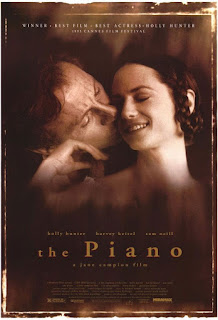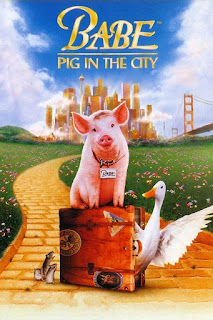January 27th: POSSESSION (Andrzej Żuławski, 1981)
NOTE: This film will be shown in high-definition Blu-ray
A couple's marriage disintigrates as a man discovers his wife has a lover and may also be involved with a demonic entity.
Polish director Andrzej Zulawski trained under acclaimed fellow filmmaker Andzrej Wadja before setting out on his own, but his second picture was banned by the Communist-controlled government. Seeking artistic refuge in France for years, Zulawski returned to his native country for the sci-fi epic On The Silver Globe but censoring authorities intervened midway through shooting and halted the production.
A couple's marriage disintigrates as a man discovers his wife has a lover and may also be involved with a demonic entity.
Polish director Andrzej Zulawski trained under acclaimed fellow filmmaker Andzrej Wadja before setting out on his own, but his second picture was banned by the Communist-controlled government. Seeking artistic refuge in France for years, Zulawski returned to his native country for the sci-fi epic On The Silver Globe but censoring authorities intervened midway through shooting and halted the production.
Inspired by the breakup of his own marriage to one of his actresses and his second exile from Poland, Zulawski embarked on what would be his first English-language film. Collaborating with writer Frederick Tuten to translate his outline into a script, the story has a palpable subtext regarding his feeling towards the oppressive, totalitarian system, as well as alleged inspiration from Tolstoy's Anna Karenina.
Working with an international cast, Zulawski first sought out French actress Isabelle Adjani, currently a popular and critical favorite. Starring alongside her is up-and coming Australian actor Sam Neill (Jurassic Park), and an assortment of German actors.
The film was shot on location in West Germany, particularly in Kreuzberg near the Berlin Wall, better to accentuate the political angle and the themes of division. Zulawski and his cinematographer alternate between a visceral, handheld style and more elegant compositions and tracking shots.
Special creature effects were designed by Carlo Rimbaldi, who would next create the E.T. figure for Steven Spielberg. The horror movie elements add another layer of intensity to Zulawski's hallmark heightened psychodrama, also enabled by the encouraged histrionics of his actors (Adjani woud later say it took her years to recover from the experience).
The film premiered at the Cannes Film Festival, where it earned Best Actress honors for Adjani, and she would follow this up with a win at France's annual Cesar film awards. Despite critical acclaim, the film was seen in re-edited versions outside France, and became part of a notorious group of "Video Nasties" systematically censored by the British government. In the early 2000s, the film was finally screened in Germany after 20+ years, accompanied by a traveling retrospective of the director's career.
Running time is approx. 2 hrs.










Comments
Post a Comment